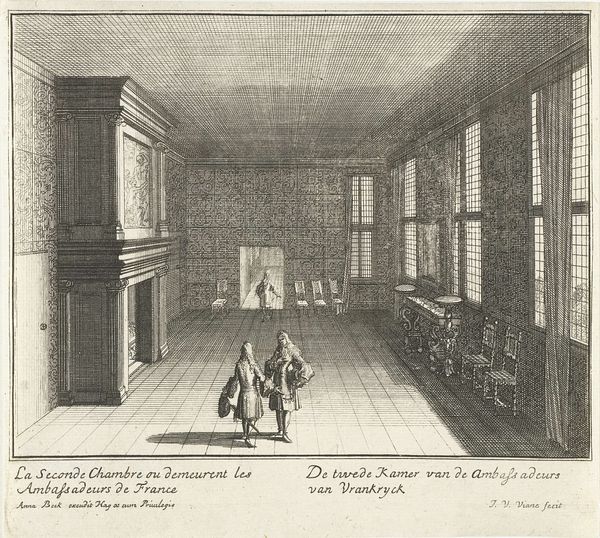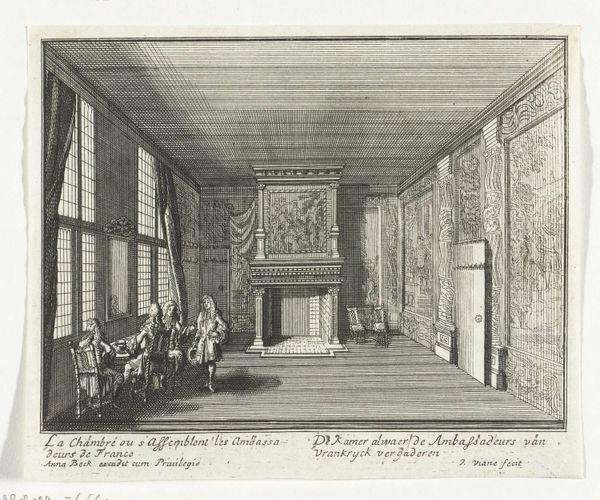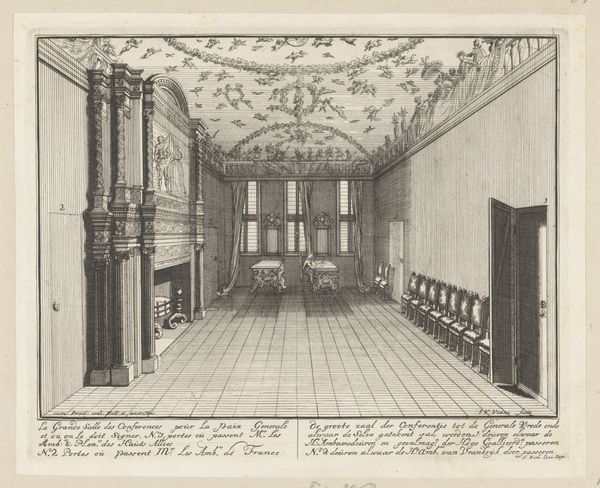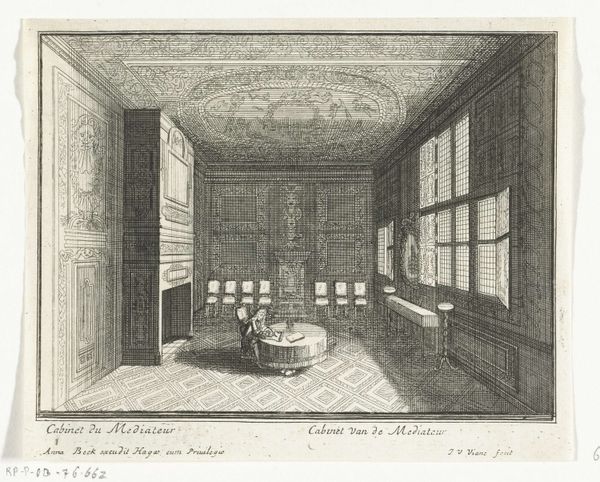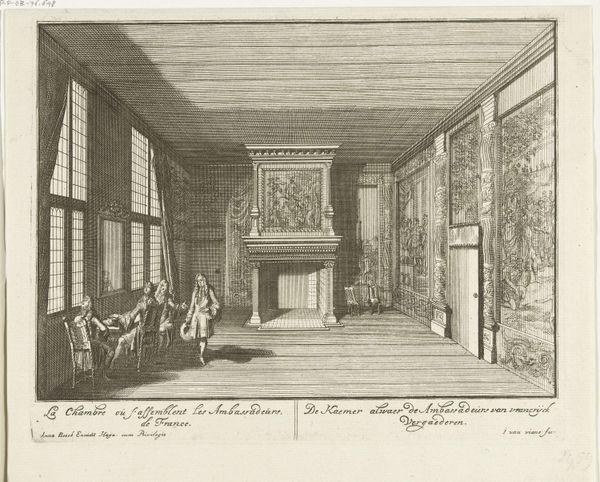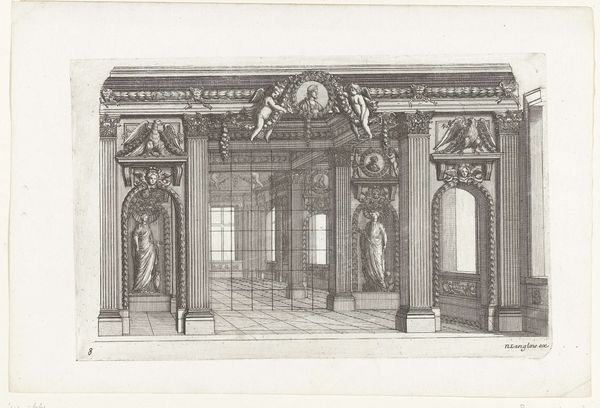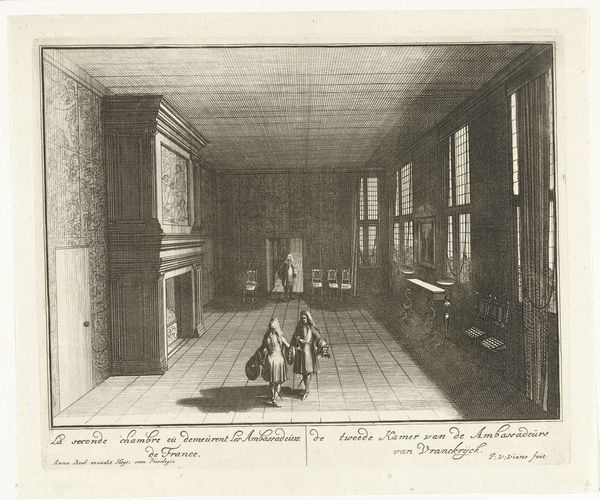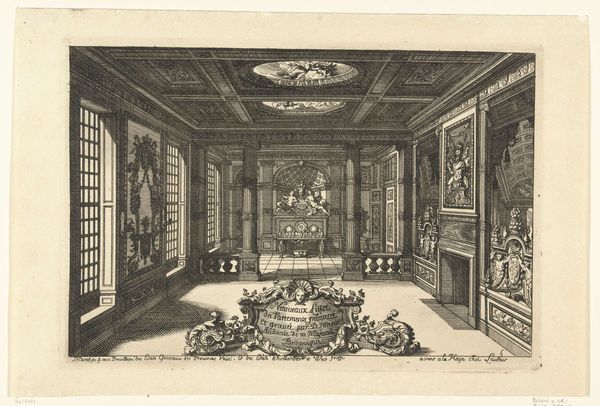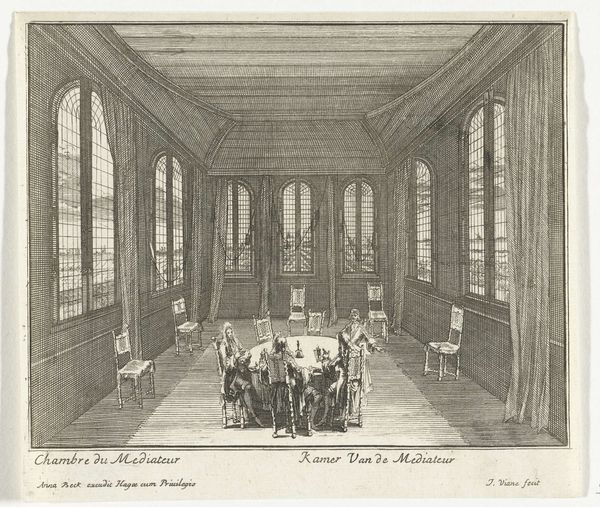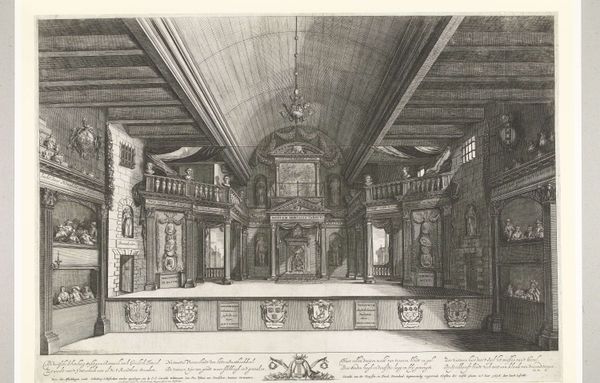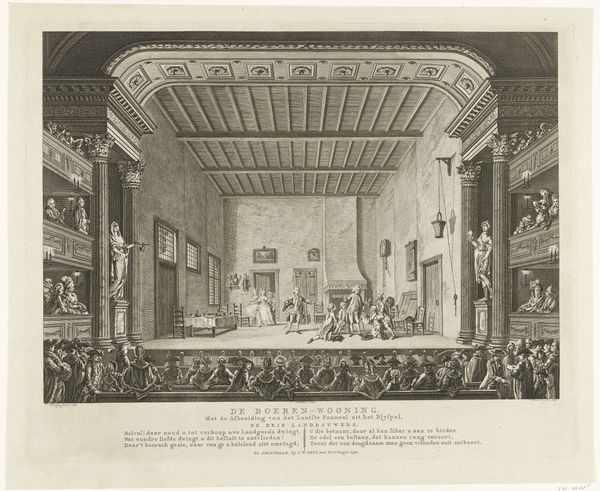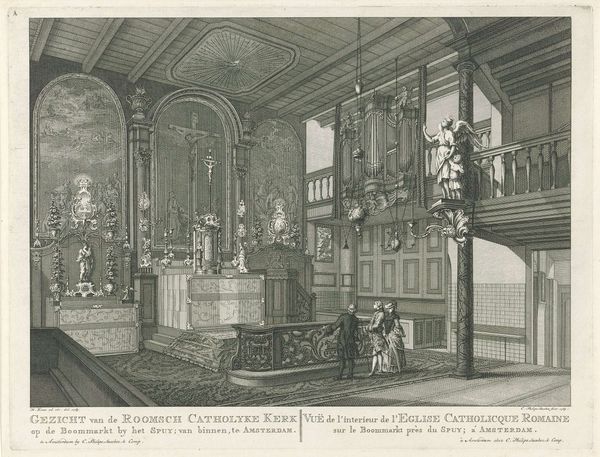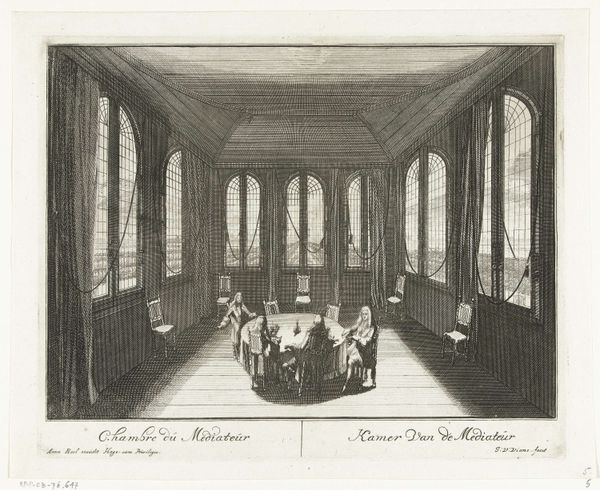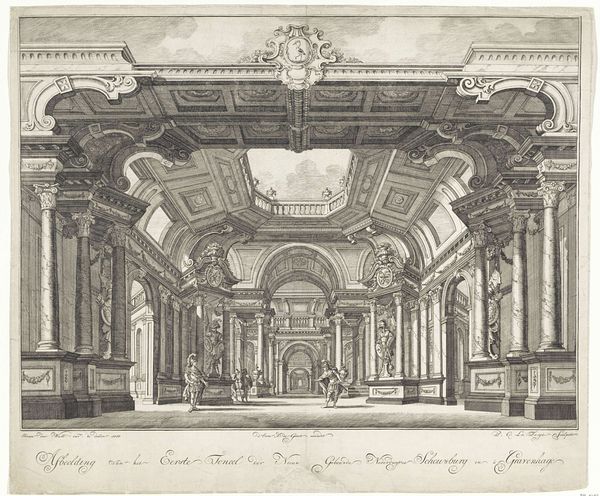
De grote conferentiezaal in het Huis ter Nieuburch in Rijswijk, 1697 1697
0:00
0:00
janvanvianen
Rijksmuseum
engraving, architecture
#
baroque
#
architectural drawing
#
cityscape
#
engraving
#
architecture
Dimensions: height 137 mm, width 160 mm
Copyright: Rijks Museum: Open Domain
Jan van Vianen made this print in 1697, depicting the grand hall at Huis ter Nieuburch in Rijswijk. It was made using etching, a printmaking technique that democratized image production during this period. Look closely, and you’ll notice the subtle lines, achieved by drawing with a needle on a wax-coated metal plate, which is then exposed to acid. The acid bites into the metal, creating recessed lines that hold ink. This plate can then be used to create multiple identical prints efficiently. Consider the labor involved: the initial construction of the hall, the creation of textiles, the making of furniture, and the skilled execution of the etching itself. The relative ease of production belies the complex social and economic systems at play. This image hints at stories of craftsmanship and artistry, while also reminding us of the wider world of commerce and consumption that made such images possible. The significance of this work lies not only in its aesthetic qualities, but also in the social and historical context of its making.
Comments
No comments
Be the first to comment and join the conversation on the ultimate creative platform.
